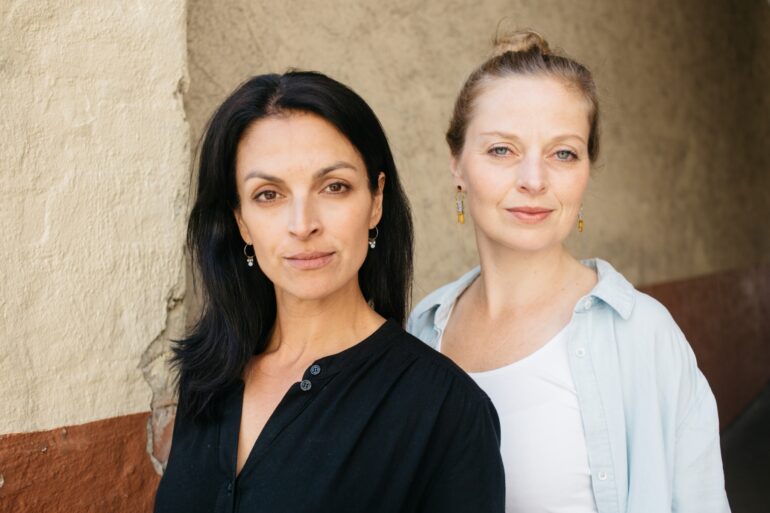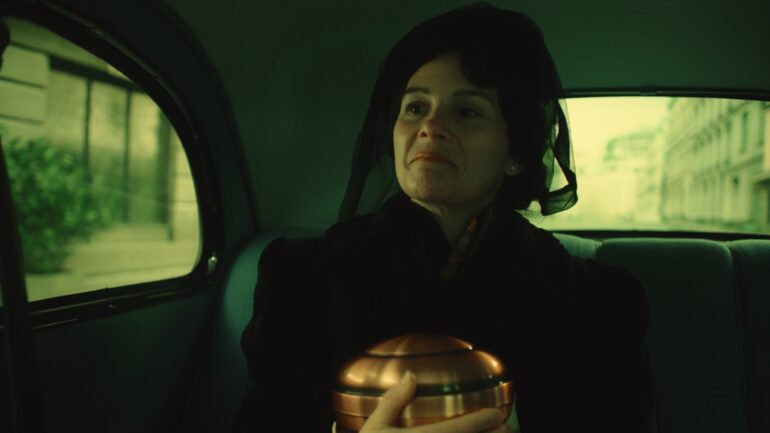WRITTEN BY: Lina Nystrand
Anna Bache-Wiig and Siv Rajendram Eliassen talk about how they co-work “like an old couple”, how Quisling evolved into both a series and a film, and how limitations can foster creativity.
Norwegian writers Anna Bache-Wiig and Siv Rajendram Eliassen are nominated for Nordic Series Script Award 2025 for the 5-episode drama series Quisling.
The series follows Vidkun Quisling, Norway's Nazi-collaborating Prime Minister, focusing on his relationship with his wife Maria and the priest Peder Olsen, who visits Quisling regularly during his final days in prison.
Quisling premiered on TV 2 Norway 21st November 2024 and is written by Anna Bache-Wiig and Siv Rajendram Eliassen, directed by Erik Poppe and produced by Paradox.
The nominees also collaborated around answering the questions below.
What motivated you to create a film and a series dealing with one of the world’s most famous traitors?
Making a film about Quisling had been a longtime passion project for the director, Erik Poppe. When he contacted us, we were immediately attracted to the riddle of the character. What drives a man to betray his people like he did? Was he a true believer or an opportunist? And did he ever have regrets? Quisling has many similarities with authoritarian leaders of today. It’s a cliché, but we actually believe that it is important to understand and discuss mistakes of the past to avoid them from being repeated.
How did you decide to write both the film and a series?
The decision to do both was actually financially motivated. The task of developing a feature and a series in tandem was daunting, and when presented with the idea, we were sceptical. It appealed to the structure nerds in us, though, and it turned out to be a really interesting process. We wrote the feature first, and the premise all along was that the material of the feature would be the basis of the series as well. The main challenge was that the screenplay was very much focused on the chamber play of Quisling and the priest Peder Olsen, talking in a cell. To make it work as a series, we needed to open the universe and turn up the pace of the story without losing its core. We love the series format, so we really didn’t want to chop the film into four or five random pieces and hope for the best. Still, we had to make use of what we had. Budgets were tight and shooting days and actors were limited, but sometimes limitations foster creativity, and luckily it worked out in the end.
What was your new take on the character of Quisling?
During research we got access to the diary of the priest who was with him in his last hours, and according to him Quisling did have some doubts about what he did. No other sources suggest this, and that was rather astonishing. It turned out to be the key to our take on the story and the character.
Can you expand on how the series focused on Quisling’s relationship with his wife (and the film on his relationship with the priest)?
The series format requires more characters and storylines in order to work, so we knew we had to fan the story out. While working on the screenplay, we were increasingly intrigued by the character of Maria Quisling. She is also very much a riddle, and the research was contradictive. We see her as a woman trapped in a situation, but also very much her own agent. It felt like a gift to be able to explore her further.
How does your different professional backgrounds benefit your writing?
In the beginning, our roles were different. Anna, being a trained actress, was more intuitive, and had a more downward-up approach, while Siv, coming from a communications background, was more analytical, upward-down, you might say. Over the years of our collaboration we have probably grown into each other’s habits and writing styles, like an old couple. Now we are more or less like a two-headed troll when working together.
You have worked together as a writers duo with director Erik Poppe before. Does he participate in the development process, and you in the casting and final edit?
As a director, Erik is close to the story. He reads along, and we have constant discussions. The trust between us has grown over the years. He is definitely in charge of the production process, but consults us regularly, especially in the editing process. So many things can happen during shooting, and sometimes parts of the story have to be reconsidered. That’s when we love to be in the room.
Looking back: Why did you become scriptwriters. Have your storytelling dreams come true, and how?
We have both been storytellers for as long as as we can remember. Screenwriting is one of many tools, but films and TV series are wonderful collaborative formats that we love. Being a screenwriter is both rewarding and frustrating, since we can never fully control the end result. But we keep trying, and keep dreaming about that one perfect series, that one perfect film. No storyteller is ever at the end of the line.
Official trailer:

